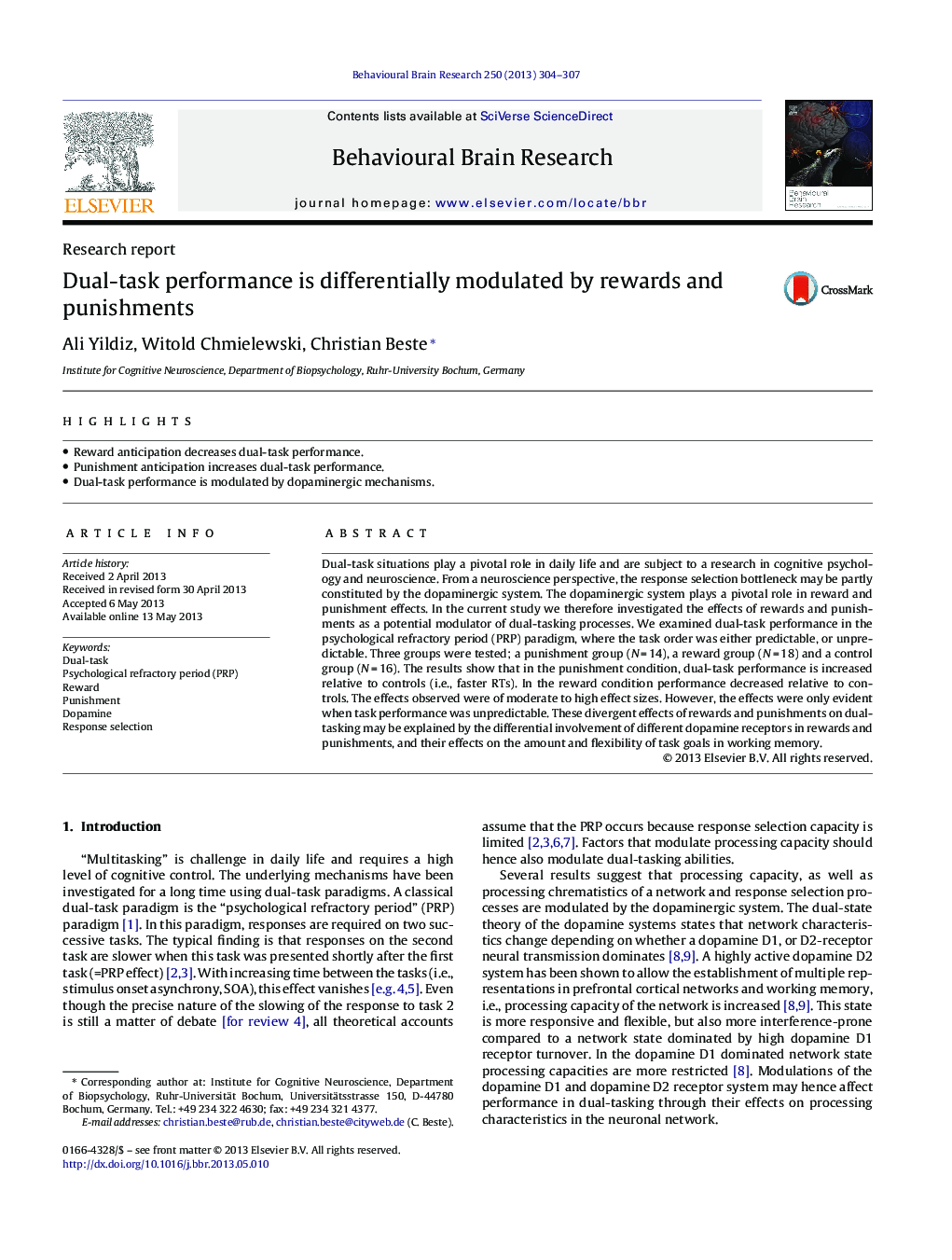| Article ID | Journal | Published Year | Pages | File Type |
|---|---|---|---|---|
| 6259020 | Behavioural Brain Research | 2013 | 4 Pages |
â¢Reward anticipation decreases dual-task performance.â¢Punishment anticipation increases dual-task performance.â¢Dual-task performance is modulated by dopaminergic mechanisms.
Dual-task situations play a pivotal role in daily life and are subject to a research in cognitive psychology and neuroscience. From a neuroscience perspective, the response selection bottleneck may be partly constituted by the dopaminergic system. The dopaminergic system plays a pivotal role in reward and punishment effects. In the current study we therefore investigated the effects of rewards and punishments as a potential modulator of dual-tasking processes. We examined dual-task performance in the psychological refractory period (PRP) paradigm, where the task order was either predictable, or unpredictable. Three groups were tested; a punishment group (NÂ =Â 14), a reward group (NÂ =Â 18) and a control group (NÂ =Â 16). The results show that in the punishment condition, dual-task performance is increased relative to controls (i.e., faster RTs). In the reward condition performance decreased relative to controls. The effects observed were of moderate to high effect sizes. However, the effects were only evident when task performance was unpredictable. These divergent effects of rewards and punishments on dual-tasking may be explained by the differential involvement of different dopamine receptors in rewards and punishments, and their effects on the amount and flexibility of task goals in working memory.
